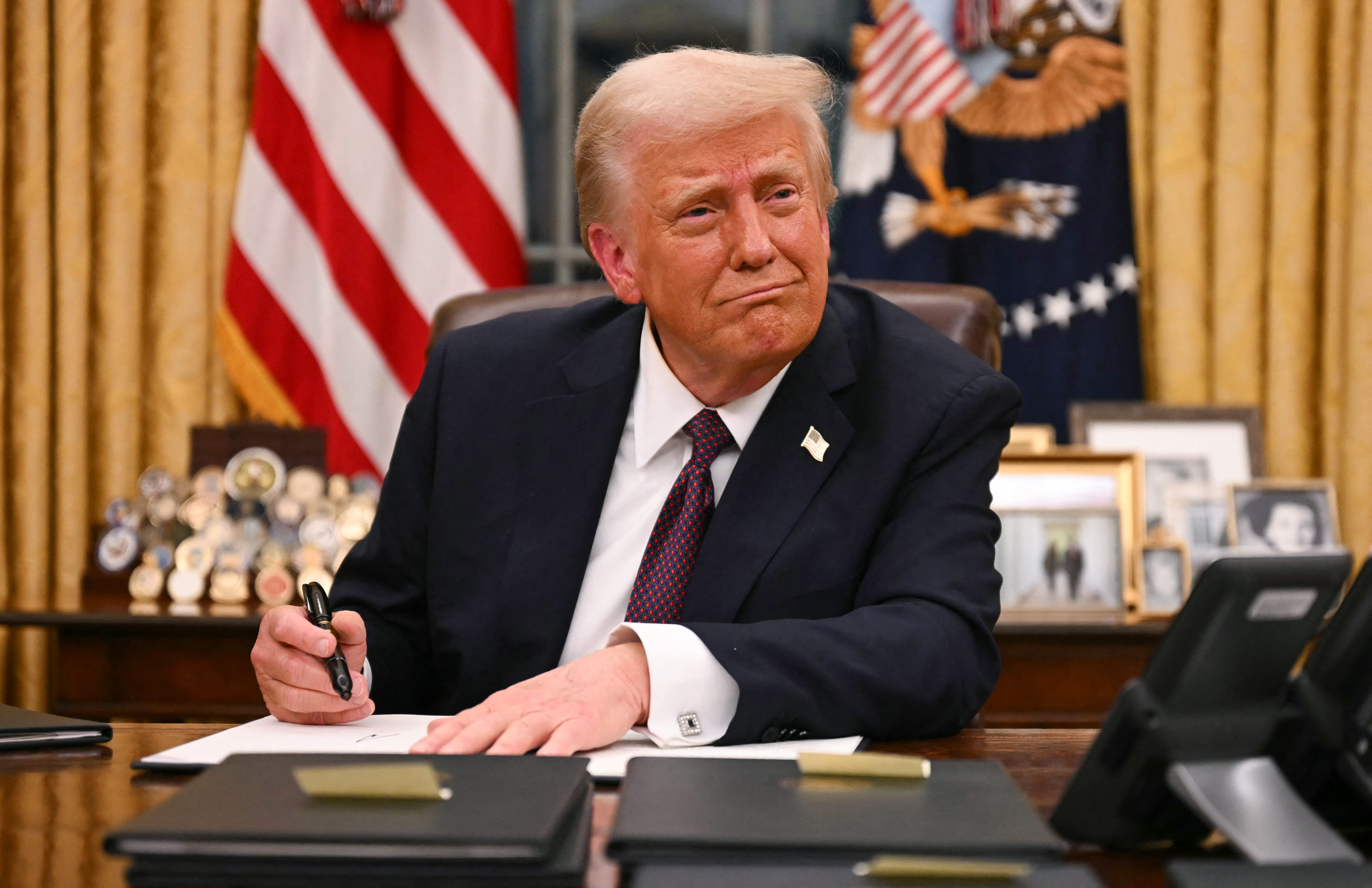U.S. economy grew 2.8 percent in 2024 - but inflation pressure remains
Some economists believe that Trump’s threat of tariffs changed consumer spending at the end of 2024

Your support helps us to tell the story
From reproductive rights to climate change to Big Tech, The Independent is on the ground when the story is developing. Whether it's investigating the financials of Elon Musk's pro-Trump PAC or producing our latest documentary, 'The A Word', which shines a light on the American women fighting for reproductive rights, we know how important it is to parse out the facts from the messaging.
At such a critical moment in US history, we need reporters on the ground. Your donation allows us to keep sending journalists to speak to both sides of the story.
The Independent is trusted by Americans across the entire political spectrum. And unlike many other quality news outlets, we choose not to lock Americans out of our reporting and analysis with paywalls. We believe quality journalism should be available to everyone, paid for by those who can afford it.
Your support makes all the difference.The American economy ended 2024 on a strong note - but inflation pressure remains.
The Commerce Department reported Thursday that gross domestic product — the economy's output of goods and services — expanded at 2.3 percent the annual rate from October through December.
The growth was slightly below the 2.4 percent that economists had predicted, according to FactSet. Despite the shortfall, however, the economy still grew a healthy 2.8 percent for the full year, compared to 2.9 percent in 2023.
Consumer spending grew at a 4.2 percent pace, the fastest since January-March 2023 and up from 3.7 percent in July-September last year.
Much of the spending growth was driven by Americans stocking up on big-ticket items, possibly to protect themselves against any price hikes that may arise from tariffs that the Trump administration has threatened. Spending on durable goods, such as cars, appliances, and furniture, rose by 12 percent in the fourth quarter.
“[President Donald] Trump’s talk of higher import taxes is already altering behavior by U.S. households,” said Joe Brusuelas, principal and chief economist for RSM US, said, per the Washington Post.
“They made those big purchases at the end of 2024, instead of 2025, to avoid possible price hikes.”

The figures are tempered slightly by evidence that businesses pulled back on investments and exported fewer goods overseas in the fourth quarter.
Wednesday's report also showed persistent inflationary pressure at the end of the 2024. The Federal Reserve's favored inflation gauge — called the personal consumption expenditures index, or PCE — rose at a 2.3 percent annual pace last quarter, up from 1.5 percent in the third quarter. Excluding volatile food and energy prices, so-called core PCE inflation was 2.5 percent, up from 2.2 percent in the July-September quarter.
Within the GDP data, a category that measures the economy's underlying strength rose at a healthy 3.2 percent annual rate from July through September, slipping from 3.4 percent in the third quarter. This category includes consumer spending and private investment but excludes volatile items like exports, inventories and government spending.
President Donald Trump has inherited a healthy economy. Growth has been steady and unemployment low — 4.1 percent in December.

On Wednesday, the Fed left its benchmark interest rate unchanged after making three cuts since September. With the economy rolling along, Fed Chair Jerome Powell told reporters, "we do not need to be in a hurry'' to make more cuts. The Fed is also cautious because progress against inflation has stalled in recent months after falling from four-decade highs hit in mid-2022.
The European Central Bank cut its benchmark rate by a quarter point Thursday, underlining the contrast between more robust growth in the U.S. economy and stagnation in Europe, which recorded zero growth at the end of last year.
The U.S. economic outlook has become more cloudy, however. Trump has promised to cut taxes and ease regulations on business, which could speed GDP growth. But his plan to impose big taxes on imports and to deport millions of immigrants working in the United States illegally could mean slower growth and higher prices.
---
Additional reporting by AP.
Join our commenting forum
Join thought-provoking conversations, follow other Independent readers and see their replies
Comments